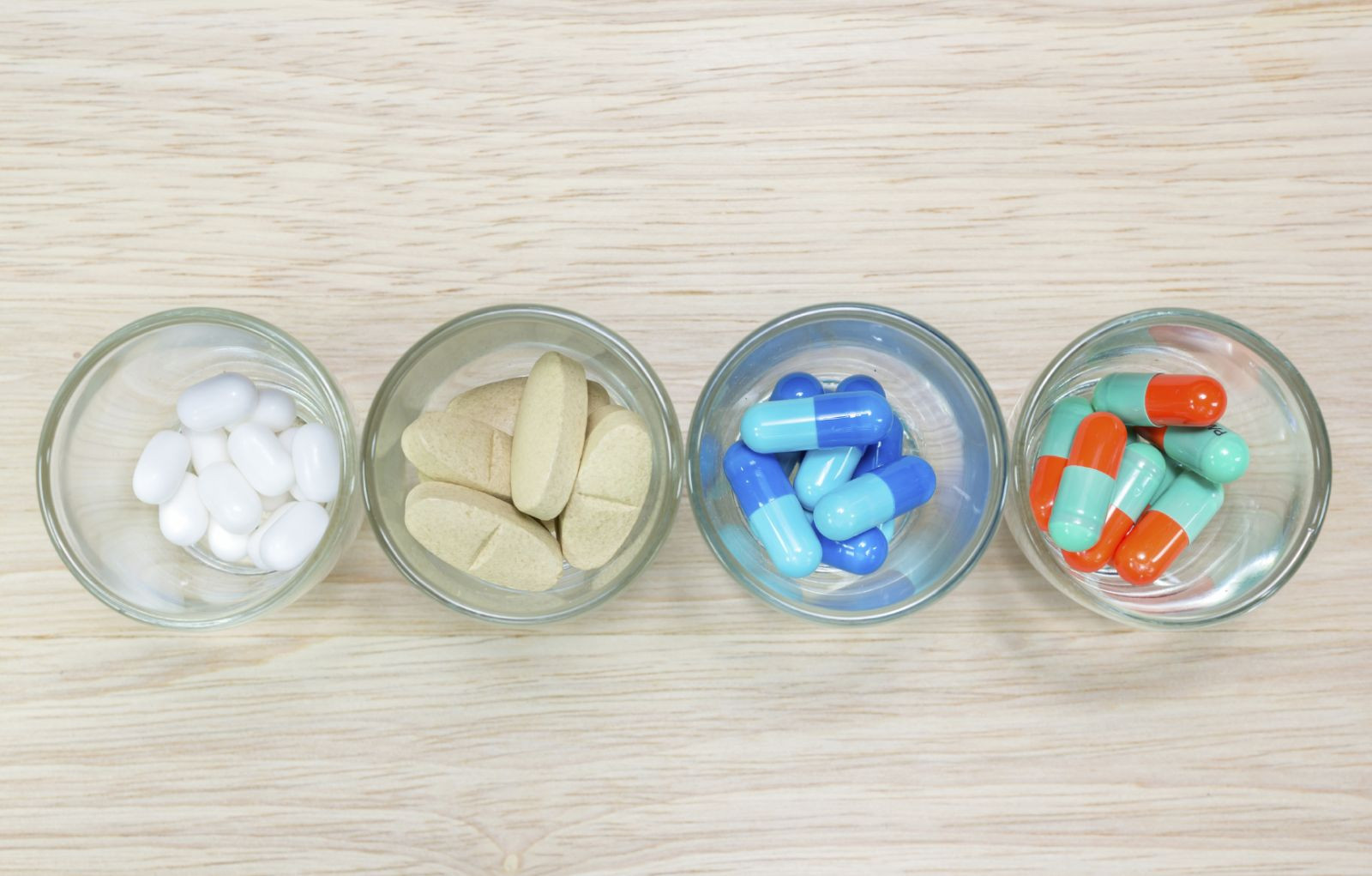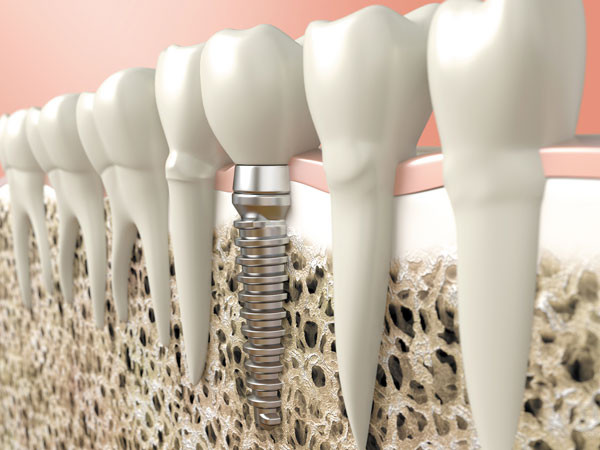
What are somatic workouts?

How to curb your stress eating

How to spot Parkinson’s disease symptoms

8 simple ways to reduce ultra-processed foods in your diet

Heart failure symptoms in women: How they’re different

GERD diet: Foods to avoid to reduce acid reflux

Strong is the new skinny

Everyday habits that sneakily weaken your bones

Don’t wait to get help for back pain

Correcting how you walk may ease osteoarthritis knee pain
Staying Healthy Archive
Articles
Feel the beat
Your resting heart rate can be an instant measure of your present and future health.
Image: Bigstock
One of the easiest ways to gauge your health can be done in 30 seconds with two fingers. Measuring your resting heart rate (RHR), the number of heartbeats per minute while at rest, provides a real-time snapshot of your heart muscle function.
It is easy to do. Place your index and middle finger on your wrist just below the thumb, or on your neck to one side of your throat, so you can feel your pulse. Use a watch to count the number of beats for 30 seconds and double it to get your beats per minute. Repeat a few times to get an accurate reading. A normal RHR for most adults ranges from 60 to 100 beats per minute.
Cutting calories offers benefits for normal and overweight adults
Reducing daily calorie intake by 25% may improve health-related quality of life even in people who are not overweight, according to a new study. After two years following a specific diet plan, subjects lost an average of 16.7 pounds, compared with less than a pound in control subjects. They also had better mood, less tension, greater general health, higher sexual drive, and better quality of sleep.
3 trends worth tapping into
Activity trackers, farmers' markets, and mindfulness aren't just passing fancies. They can help you develop beneficial health habits.
Image: julia514/iStock
The word "trendy" has come to refer to a fad or fashion that may have little lasting value, so it can be a turn-off, especially when applied to health practices. But trends can also have lasting health benefits—for example, the trends toward making public places smoke-free or adding calorie counts to fast-food menus. There is increasing evidence that the three trends below fall into the "beneficial" category.
1. Wearing activity trackers
2. Shopping at farmers' markets
In the last 30 years, farmers' markets have moved from the sides of rural roads to the centers of major cities and everywhere in between. Although it may be coincidental, farmers' markets are tailor-made for people who are serious about following the 2015–2020 Dietary Guidelines for Americans, which advise a gradual shift to a plant-based diet centered around vegetables, fruits, and whole grains. In one recent study conducted by researchers at Harvard T.H. Chan School of Public Health, when people began to shop at inner-city farmers' markets, they also consumed less sugary soda and more vegetables than they had previously. Farmers' markets offer several other advantages over supermarkets:
Freshness. Just-picked produce is at its peak in flavor and nutrition.
Variety. You may find some fruits or vegetables you haven't seen before or new versions of old standards.
Information. Because the people who sell the produce are likely to have had a hand in growing it, they should be able to tell you the kind of farming methods used and offer suggestions on preparing the food.
Samples. If you're wondering if the cherries are sweet or tart or if the apples are crisp, ask for a sample. Most vendors are happy to comply.
Sustainability. Eating locally or regionally grown produce means less energy is expended bringing it to your table. And supporting regional agriculture is good for your community.
You can find a farmers' market near you by going to the U.S. Department of Agriculture website using the link at www.health.harvard.edu/farmers.
3. Practicing mindfulness
Where to go when you get sick
Do you know where to go when you get sick? If you can't see your own doctor, you might go to a retail clinic, urgent care, or the ER, depending on the situation. Dr. Terry Schraeder explains the difference and where to best seek the help you need.
Prescription drug and supplement use on the rise among seniors
New findings suggest that one in six older adults is at risk for drug interactions. Should you be concerned?
Image: iStock
Earlier this year, a study that examined the pill-taking habits of older Americans suggested that seniors are taking more prescription drugs and dietary supplements than in years past. Not surprisingly, most of these pills are used to treat or prevent cardiovascular disease, the nation's leading killer.
The report found that more than a third of adults ages 62 to 85 take five or more prescription medications, over-the-counter (OTC) drugs, or dietary supplements (see box for a description of the study). The study found that about one in six older adults is taking a combination that could cause a major interaction.
Gut reaction: How bacteria in the belly may affect the heart
A better understanding of the gut microbiome may herald novel ways to prevent artery-clogging plaque.
Image: Christos Georghiou/Thinkstock
The trillions of bacteria dwelling deep inside your digestive tract play a key role in your health. Collectively known as the gut microbiota, these microbes not only assist with digestion, but also make certain vitamins, break down toxins, and train your immune system. Over the past decade, scientists have uncovered compelling connections between different types of gut microbes and the development of obesity and diabetes—two factors closely tied to a higher risk of heart disease. Recently, several studies have explored how our gut microbes interact with the food we eat to spur artery-damaging inflammation and narrowing. While these findings are preliminary, experts hope they'll one day lead to personalized diet recommendations or other therapies to lower the risk of heart disease.
Artery damage
Avoiding blockages
The investigators then tested a molecule that blocks the production of TMA, which they gave to mice prone to atherosclerosis, thanks to their genes and a high-fat diet. The molecule, called DMB, occurs naturally in olive oil and red wine. The mice that got DMB in their water had healthier, clearer arteries than those that didn't.
Earlier this year, Chinese researchers described a different but related approach to preventing blood vessel injury in atherosclerosis-prone mice. By giving the mice a specific strain of bacteria called Akkermansia muciniphila, they discovered that they could prevent inflammation—the chronic, persistent immune response that contributes to the buildup of fatty plaque in arteries. The effect was largely due to a protein that was able to "tighten up" the communication between cells in the inner lining of the gut, Dr. Loscalzo explains. As a result, fewer toxins from the diet could pass from the gut into the bloodstream, which in turn dampened inflammation.
Gut check?
Does regular exercise reduce cancer risk?
It appears people with the highest levels of physical activity have lower rates of cancer of the esophagus, lung, kidney, colon, head and neck, rectum, bladder and breast, compared with people with the lowest levels of physical activity.
Exercise-free activities that work your muscles and heart
Dancing, playing sports, and even cleaning your house can give you a nontraditional workout that helps maintain good health.
Image: Jon Feingersh/Thinkstock
Exercising is supposed to be a regular part of your daily health maintenance. That can be a problem if you don't have the motivation to get your heart pumping; you raise your risk for weight gain, chronic disease, and an earlier death.
Fortunately, you can get plenty of effective exercise by engaging in recreational or household activities that work your heart and muscles. "There's a real reward in doing an activity you enjoy, such as swimming or playing with your grandchildren. You get a workout, but it doesn't seem like you're exercising, and you may be more willing to keep doing that activity every day because it's fun," says Dawn Rogers, a physical therapist at Harvard-affiliated Brigham and Women's Hospital.
Dental implant reality check
Are these advances in dental health right for you?
Image: GuidoVrola/Thinkstock
Tooth decay, gum disease, and injury to the mouth can all lead to the loss of one or more teeth. The standard solution usually involves removable dentures or a fixed bridge. A newer option, dental implants, is also gaining popularity. "Implants can significantly improve your quality of life," says Dr. German Gallucci, department chair of restorative dentistry at the Harvard School of Dental Medicine.
About implants
Uses and benefits
In older adults, implants are typically used to replace one or two missing teeth (but not a mouthful). "Before implants, the only option we had was a bridge. With the implant, you can independently restore the tooth. That's a significant improvement in our therapy, to the point that we have reduced the number of bridges we do nowadays," says Dr. Gallucci.
Implants are also used to anchor a bridge or dentures. "Without implants, dentures move while you eat or speak, which makes it difficult to do either. But when you clip the denture onto an implant, it stays in place and functions normally," says Dr. Gallucci. He says supporting dentures or bridges may require two or more implants.
Requirements
Considerations
There are few downsides to getting implants. One is cost. "The range varies from state to state. It could be between $2,000 and $6,000 for one tooth and crown. But that's comparable to a bridge," says Dr. Gallucci.
Some insurance plans cover implants, especially for a missing tooth. Medicare does not pay for implants.
Another drawback: the time involved in healing. But the benefits, says Dr. Gallucci, can be worth it.
If you're interested in pursuing implants, he recommends getting several opinions. You can start by making an appointment with either a dentist who's surgically trained to place implants and has years of experience, or a prosthodontist—an expert in tooth restoration and replacement.
What to eat when your teeth and gums hurtIt's common after oral surgery to have some pain for a day or two, or even longer. This may mean that you have to be especially mindful of what you eat and drink. Sensitivity to hot and cold items is typical. But even the act of chewing can be uncomfortable. What's best to eat? "Avoid crunchy and sticky foods and stick to a soft diet," says Dr. German Gallucci, a restorative dentistry expert at the Harvard School of Dental Medicine. "Go with soups, pastas, yogurt, and even baby food." He advises avoiding the side of your mouth that's been operated on, and eating only small bites of food that keep your teeth from making forceful contact. Other tips: Avoid anything very hot on the first day after surgery, as heat can increase the risk of bleeding; drink a lot of fluid, at least five or six cups per day; and baby yourself. "Give your mouth a chance to heal," he says. |

What are somatic workouts?

How to curb your stress eating

How to spot Parkinson’s disease symptoms

8 simple ways to reduce ultra-processed foods in your diet

Heart failure symptoms in women: How they’re different

GERD diet: Foods to avoid to reduce acid reflux

Strong is the new skinny

Everyday habits that sneakily weaken your bones

Don’t wait to get help for back pain

Correcting how you walk may ease osteoarthritis knee pain
Free Healthbeat Signup
Get the latest in health news delivered to your inbox!
Sign Up










